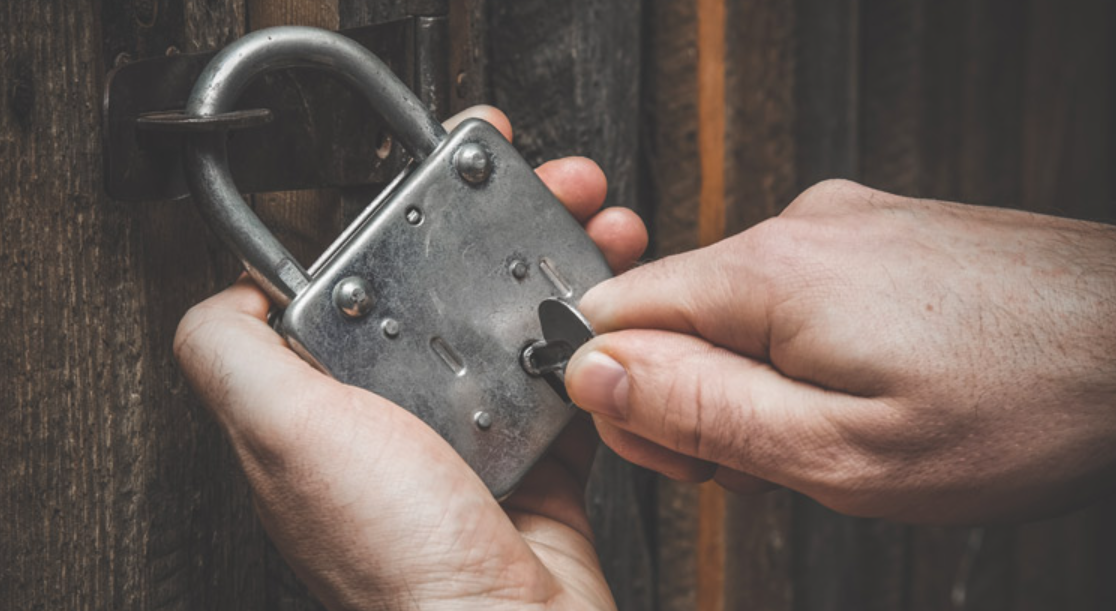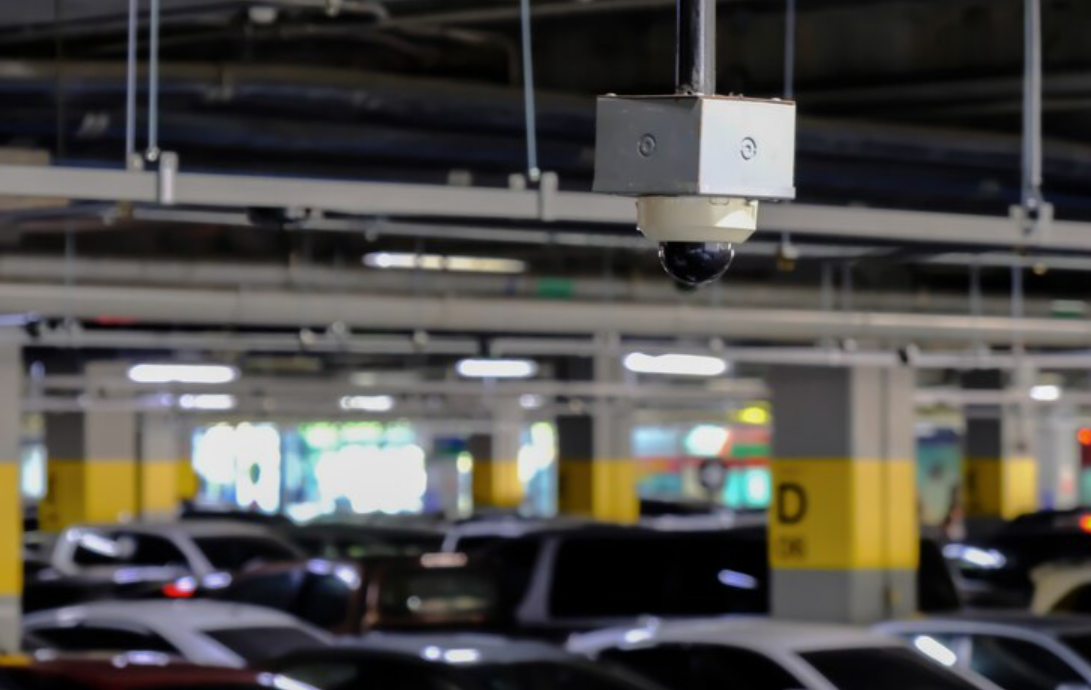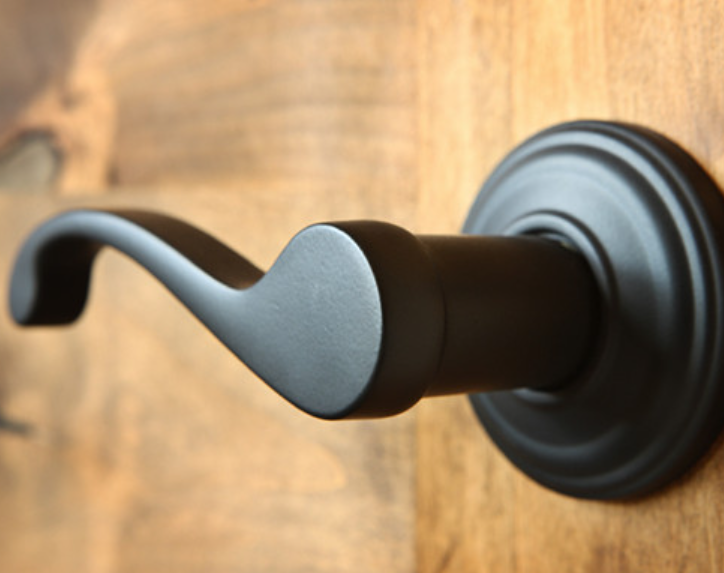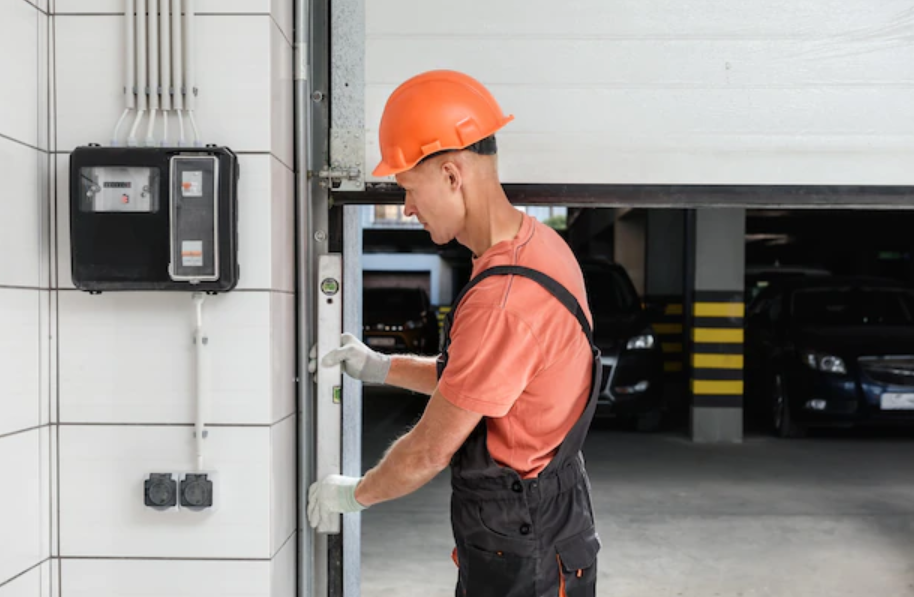Garage door locks are an integral part of a home security system, playing a crucial role in safeguarding the contents of a garage. They come in different forms, including keypad locks, deadbolt locks, and biometric locks.
If you’re looking for to secure your garage, understanding the different types of locks and how they work is important. In this article, we’ll give you a comprehensive overview of what garage door locks are, how they work, and the different types of locks available.
What is a Garage Door Lock?
Garage door locks are modern garage door security connected devices designed to protect the contents of your overhead garage from theft. They keep intruders out while allowing you and other authorized people to gain access when necessary. These smart locks are designed to be used with motorized keychain remote-controlled smart garage door openers, but some can also be used with manually activated systems.
There are many different lock types, though all serve the same primary function. Each lock type is unique, but they all accomplish their goals in the same way: preventing unauthorized access to your residential garage. Garage Door Locks vary in terms of what they look like, how they’re operated, and the type of door they can be used on.
How does a Garage Door Lock work?
A typically connected garage door lock consists of a keypad for entering a code or hand-turning the garage door opener, a control box for circuitry and wires that lead to the latch on the safety cable garage door itself, and electronics connected with sensors as well as wiring which connects to external devices.
The primary purpose of the keypad is to input a code into the control box, allowing it to unlock with anything from a simple push button to a long series of button pushes on the keypad. When the door is locked, this circuit will allow for power to be cut off for that section of the garage by shutting off power to the motor. A key fob would switch from “off” (with no power) to “on” (with power).
Type of Garage Door Locks
There are two main types of garage door locks: manual and automatic. Each has its own benefits and drawbacks. The first, manual locks, are the simplest type of garage door lock and can be retrofitted onto existing garage door openers. Automatic locks (aka motorized) use an attached motor to move the locking mechanism. If a motorized system is not compatible with your garage door opener, you must replace the opener with one that has built-in compatibility with the automatic lock.
Manual Locks
The most basic garage door lock is the manual type. It requires a key that is inserted into the lock by a keypad or handles, in order to unlock it. Manual locks are simple, and easy to operate (provided you have a key or key fob), but not as secure as an automatic lock. If someone happens to get a hold of your garage door key, it’s very easy for them to enter and steal your belongings. The most common manual lock setup also needs to be removed in order to manually open the garage door (which can be difficult with some types of doors).
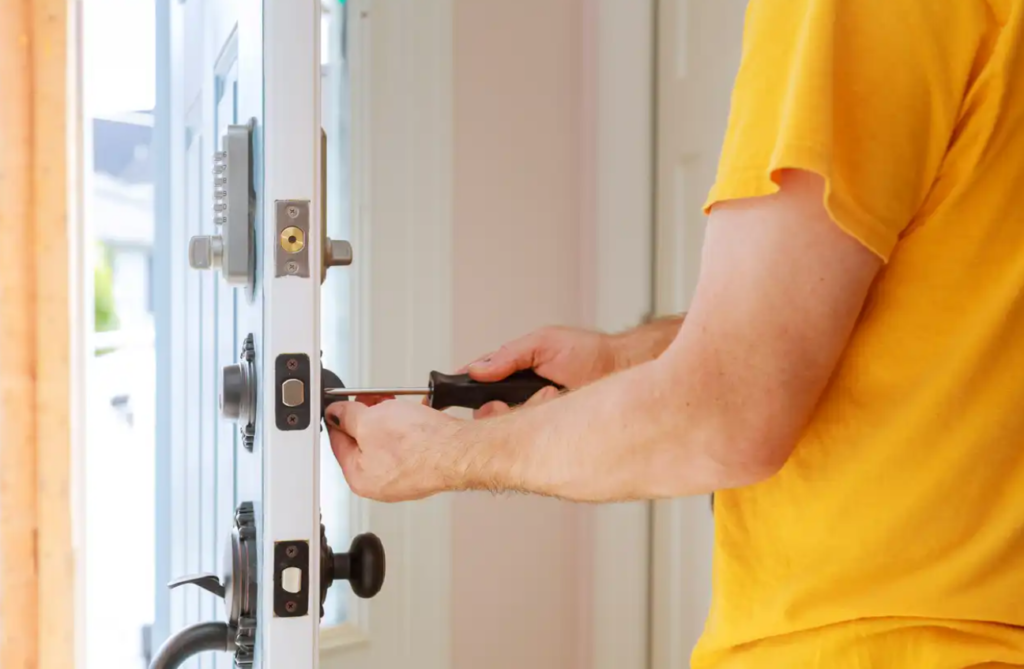
A manually operated garage door lock will have a small control box hidden out of sight, usually located inside the garage. This box is usually connected by a long wire to the motor, which completely controls the locking mechanism. Larger than small manual locks can have these boxes located in or around the garage or attached to a nearby wall.
Some manual locks use hand-turning to open the doors with a set of keypads built into their handles or on their walls (like most newer car-opening doors). A hand-turned lock is easier to operate but doesn’t have the same level of garage security as an automatic garage Door lock.
Advantages of Manual Garage Door locks
- Easy to install, mount and use.
- Very affordable and simple to purchase.
- Inexpensive to repair when broken.
- Simple-to-use keys prevent loss of access points.
Drawbacks of Manual Garage Door locks
- A person who has your garage key will have access to your garage and everything in it, provided they can get past your fence or are able to pick a lock on the door itself.
- Keys can be easily lost.
- If you lose your key it may take a little time to find a new one.
- If the manual lock is improperly installed it will not work properly, requiring additional work to repair.
Automatic Locks
Automatic Garage door locks are generally more secure. This is because they cannot usually be operated by hand, meaning someone would need the key fob or code in order to unlock it. These locks can open using a remote, a key fob, or even by using the garage door opener. Automatic locks utilize sensors to determine if someone is there, and a motorized unit to press and hold the door up (in order to keep it in place when you drive in). Some automation systems even use garage door sensors to detect your proximity and will unlock the door automatically when you arrive.
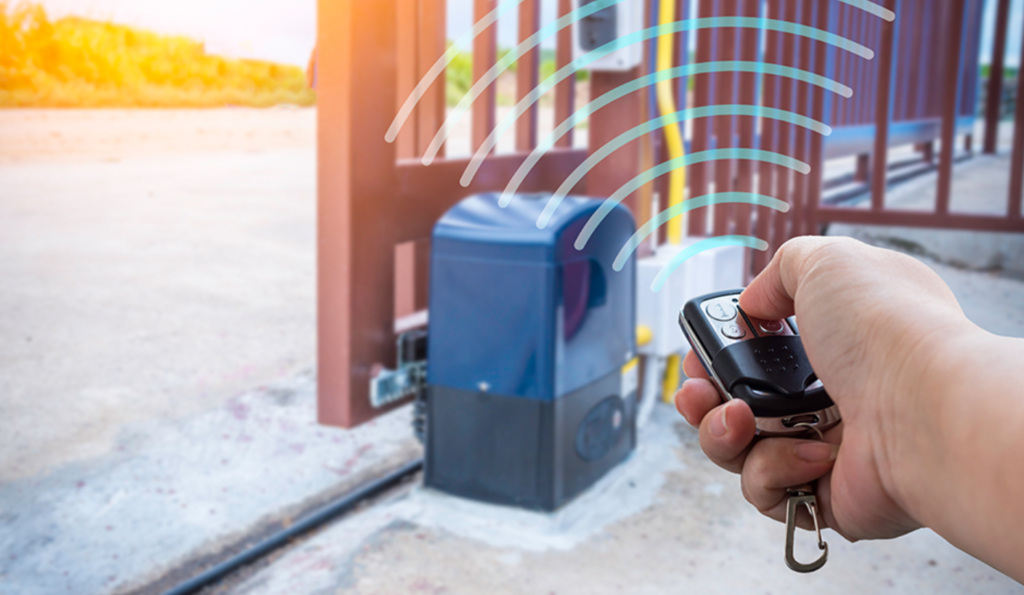
Advantages of Automated Garage Door Locks
- User-friendly.
- Basic Home Security System – This can unlock automatically when you arrive home.
- Automatic locks are usually a little more secure than manual locks.
- Transparent to their owners; anyone who knows how to open the garage door can access their garage.
- Most accessible for entry by children or elderly people.
- A genuine remote often comes with the lock and it can be left on the door, allowing someone at home to open the door with a tap on the key fob.
Disadvantages of Automatic Garage Door Locks
- They can be expensive to install.
- Access control can be disabled by a determined burglar who knows what he or she is doing.
- Replaceable remotes are not always easy to find.
- There are a lot of mechanisms in the lock itself, which can get worn out and need frequent replacement.
- Automatic slide locks can be difficult to operate if the batteries die.
Things to consider while buying a Garage Door lock
Both manual and automatic locks come in an array of styles, shapes, sizes, and prices. When you’re shopping for a garage door lock it’s important to choose one that will match the style of your house. It’s also important to make sure it’s made by a reputable company that provides good customer service. Before you buy anything, ask questions about the technology involved in the device you’re considering and make sure it’s compatible with your home and your garage door opener.
The size of your garage door is one of the first things to consider. Most garage door locks have maximum size restrictions; you will want to check what yours is before purchasing. Some locks are designed to work with both small and large doors. Usually, the larger your door, the more options you have when choosing a lock that suits your needs. Of course, it also depends on how much space you want to devote to your garage door lock system.
Also Read: Can Thieves Open Your Garage Door
One of the most important things to consider is how the lock operates. The majority of automatic locks open via a remote control, but some older systems utilize an access code that must be entered on the keypad. Some locks use both; you can enter a code on the keypad and then open the door using your remote. Other locks are operated through your smartphone control, which gives you access to all built-in smart features regardless of where you are.
The type of garage door opener you have is another important consideration. Most garage door openers come with a manual lock that can be installed at any time. Other openers are designed to work with a specific lock, so make sure you purchase the correct one. If this is the case, it is usually possible to exchange your opener if you don’t like how it works with your new lock.
Common Question Related to Garage Door Lock
What is a common issue with garage door locks?
The most common garage door lock problems are breaking or failing to work. While there are many other issues with garage door locks, cosmetic defects such as a broken keypad or a damaged sensor are usually the reason for the failure to work.
How do I choose the best garage door lock?
Choosing a garage door lock depends on the style of your house and your personal needs. If you live in an area that is prone to break-ins, you should think about an automatic lock with a code or keypad. This will keep thieves out of your garage without requiring you to carry around a remote or key fob. You can even add an extra layer of garage door security by installing sensors that alert you when someone has opened or closed the door.
How do I choose a garage door lock for my home?
All garage door locks are designed to fit a certain type of garage door, so make sure you know what kind you have before purchasing. The type of opener you have will also affect the type of garage lock you should choose. Look for one that is compatible with your existing system if possible. If this isn’t the case, be sure to get an automatic lock with a keypad that works with your opener.
What kind of garage door lock should I get?
It depends on the style of your home and your personal preferences. Automatic locks are generally easier to use and offer more built-in security features. If you like the idea of being able to open and close your garage door from anywhere, an automatic lock is a good choice. If you’d prefer a lock that’s less complicated to install, manual locks can be purchased for as little as $50.
How can I make my garage door more secure?
By installing an automatic lock, you have a highly effective burglar deterrent that is easy to access. Automatic locks are the best choice if you want to keep your electronic garage secure without making it difficult for yourself or others to enter. If you have small children, elderly family members or pets, you should seriously consider an automatic lock for your home.
How do I install a garage door lock?
Locks for garage doors are generally easy to install; however, you should follow the directions included with your specific lock. Some locks come with a magnetic key, which allows you to install the lock without a key or special code. The instructions will show you how to do this. In most cases, the instructions will also tell you how to remove and replace the old lock with your new one.
How often should I replace my remote?
It depends on how often you use it and how much you enjoy using it. If your remote fails completely, there’s no reason not to replace it immediately. However, if the remote works intermittently and you don’t mind replacing it every few years, that’s fine too.
Why should I use a remote for my lock?
Locks for garage doors are designed for automatic locking and unlocking. This means that you must turn off your garage door opener before you can use your remote. Often, you won’t have to do this if your door is equipped with an automatic lock; the door will open once the lock is in place.
Can You Replace a Garage Door Lock Yourself?
If you want to save money, it is possible to replace garage door locks on your own without having to call in a professional. However, it is important that you understand what kind of lock you need before starting the process.
Conclusion
While most garages will benefit from some form of garage security, there are some situations where having an automatic lock will be a great way to protect your home. If you like the idea of being able to have an actual key, you should consider a traditional lock. If you want to be able to operate your garage door from anywhere, an automatic garage door lock is definitely the way to go. If you have small children, an automatic garage door lock is also a great choice.
In conclusion, garage door locks are an essential part of a home security system and come in various forms to suit different needs. Whether you opt for a manual or automatic lock, ensure you understand how the lock works and choose one that best suits your needs.
Hopefully, this article has given you some good information on garage door locks.
Read More Articles on Google Door Locks and Security Below:
What are Deadbolt Locks?
Common Types Of Door Locks
Common Garage Door Break-ins
Garage Door Defender

